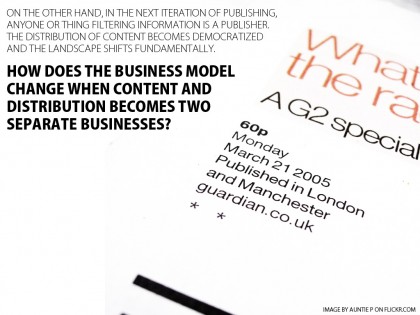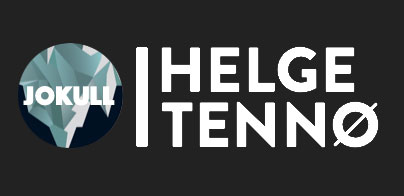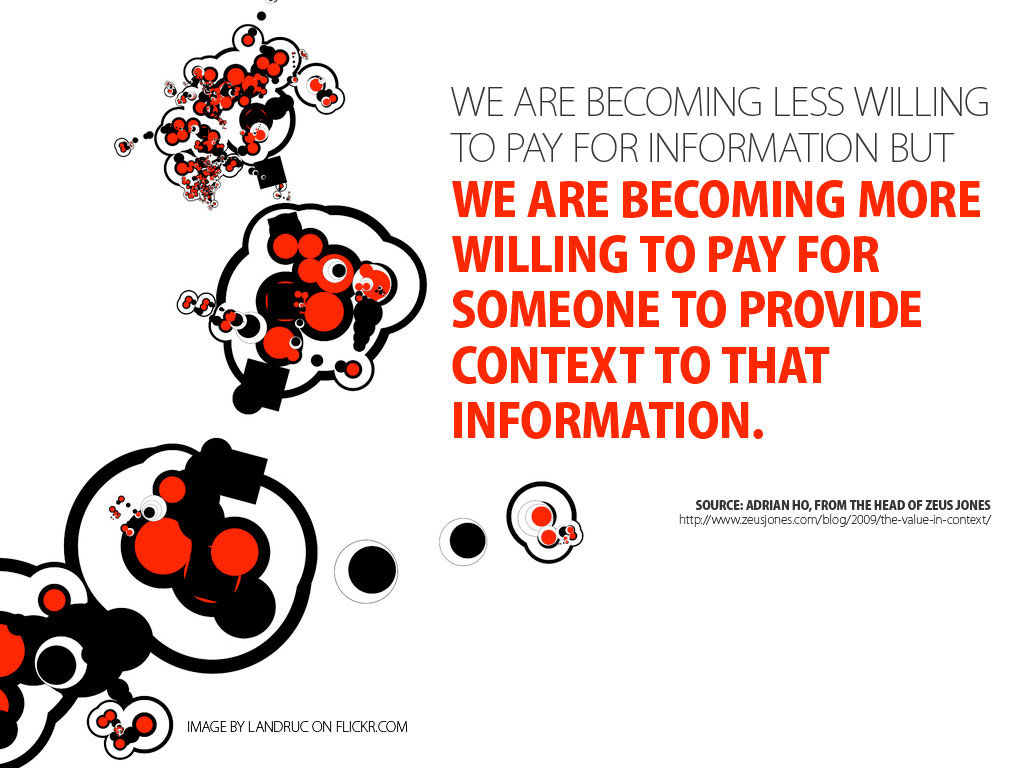In order to understand the future of news we need to understand that there is more to publishing than content, meaning and images. It’s also its context, especially who shared, what and why.
In my first presentation on media called Future Media, I focused on changes to the media business model (from products to value and from infrastructure to relationships). In this article I will try to present the third idea (of three), related to context – where the relationship to the sharer (identity) becomes as important as the content itself.
In one of her articles Danah Boyd, after researching peoples tweets, found that people as often referred to the person who shared the content as its originator
. And suggests that the source of the content (the person who shared it) is as important as the content itself.
Adrian Ho also pointed this out:
- “We are becoming less willing to pay for information but we are becoming more willing to pay for someone to provide context to that information.” – Adrian Ho, Zeus Jones
A former boss of mine, Kristin Halvorsen, taught me two things on knowledge managment:
- 1. It’s much better to hand someone an article or book with your notes in it, because it tells the person what and why stuff is important.
2. You can always tell something about the content based on its source. As an example you never bother reading stuff from some people, while you make time no matter how busy you are to read stuff from others. In the end it is your relationship with the person who shares that decides if you’re going to engage with the content or not.
Now why is all this important for publishers:
- 1. Publishers need a clear and consistent identity, which goes all the way to the core of the product – the content itself
Verynever or How long does cialis last?.
. The problem is that a lot of publishers’ brands have become generic, so there is no contextual value connected to the content. And by that no additional contextual incentive to engage with it.
2. A publisher is both content and filter. There was a time when the editorial staff did the filtering, but this is not effective enough anymore, as Chris Anderson points out: “In the age of free everything gets published”. (PopTech). If publishers are to publish everything, they need to make sure their filtering mechanisms are designed based on their contextual value and identity.
At a time when the concept of news is changing (checking your friends Facebook updates is as important news as reading about the oil spill in the Gulf of Mexico), the source’s contextual value, the contextual promise, will be ever more important.
On the other hand, in the next iteration of publishing, anyone or thing filtering information is a publisher. The distribution of content becomes democratized and the landscape shifts fundamentally.
How does the business model change when content and distribution becomes two separate businesses?




Amazingly fast!
Knockdown efect!
[…] reason for my amazement is two fold, both argued in a former post: 1. I think this is from Clay Shirky: The perception of news is changing from something distributed […]